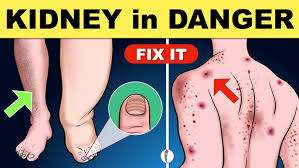Prostate cancer is common amongst men from 65 years and above. However, it could also be found in men of lesser ages.
The prevention of this cancer involves a combination of lifestyle changes, dietary adjustments, and regular medical check-up. While there’s no guaranteed way to prevent prostate cancer, certain strategies may help reduce your risk. Here’s a comprehensive guide:
1. Healthy Diet
Eat a Balanced Diet: Focus on a diet rich in fruits, vegetables, whole grains, and lean proteins.
These foods are high in vitamins, minerals, and antioxidants that may help protect against cancer.
Reduce Red and Processed Meat: Limit consumption of red meats (like beef and pork) and processed meats (like bacon and sausages), as some studies suggest they may be linked to an increased risk of prostate cancer.
Incorporate Healthy Fats: Opt for healthy fats from sources like olive oil, nuts, and fatty fish. Omega-3 fatty acids, found in fish like salmon, may be beneficial.
Increase Fiber Intake: High-fiber foods, such as fruits, vegetables, and whole grains, may help lower cancer risk.
2. Regular Physical Activity
Exercise Regularly: Engage in regular physical activity, such as walking, swimming, or cycling. Exercise helps maintain a healthy weight and may lower the risk of several types of cancer, including prostate cancer.
3. Maintain a Healthy Weight
Avoid Obesity: Obesity is associated with an increased risk of prostate cancer, particularly aggressive forms. Maintaining a healthy weight through diet and exercise can reduce this risk.
4. Limit Alcohol and Tobacco Use
Reduce Alcohol Consumption: Moderate alcohol intake, as excessive drinking has been linked to various health issues, including cancer.
Avoid Tobacco: Smoking and tobacco use are linked to many types of cancer, including prostate cancer. Quitting smoking can improve overall health and reduce cancer risk....Read Full Article [Click Here>]
5. Regular Medical Check-Ups
Screening and Early Detection: Discuss with your doctor about prostate cancer screening, especially if you have a family history of the disease or other risk factors.
Screening typically involves a prostate-specific antigen (PSA) blood test and a digital rectal exam (DRE).
Genetic Testing: If you have a family history of prostate cancer, consider discussing genetic testing with your healthcare provider to assess your risk.
6. Know Your Family History
Family History: If you have a family history of prostate cancer or other cancers, inform your doctor. You might need to start screening earlier or undergo more frequent evaluations.
7. Consider Medications or Supplements
Medications: In some cases, medications like 5-alpha reductase inhibitors (e.g., finasteride) may be recommended for those at high risk of prostate cancer, though they are not universally prescribed.
Supplements: Some studies suggest that certain supplements, such as vitamin D and selenium, might have a protective effect, but more research is needed. Consult with your healthcare provider before starting any supplements.
8. Manage Stress
Reduce Stress: Chronic stress can impact overall health. Engaging in stress-reducing activities like meditation, yoga, or hobbies can contribute to better overall well-being.
9. Stay Informed
Ongoing Research: Stay informed about the latest research and recommendations related to prostate cancer prevention and management.
While these steps can help reduce the risk of prostate cancer, they are not foolproof. Regular consultations with healthcare professionals for personalized advice and screening based on your individual risk factors are crucial for maintaining prostate health.





